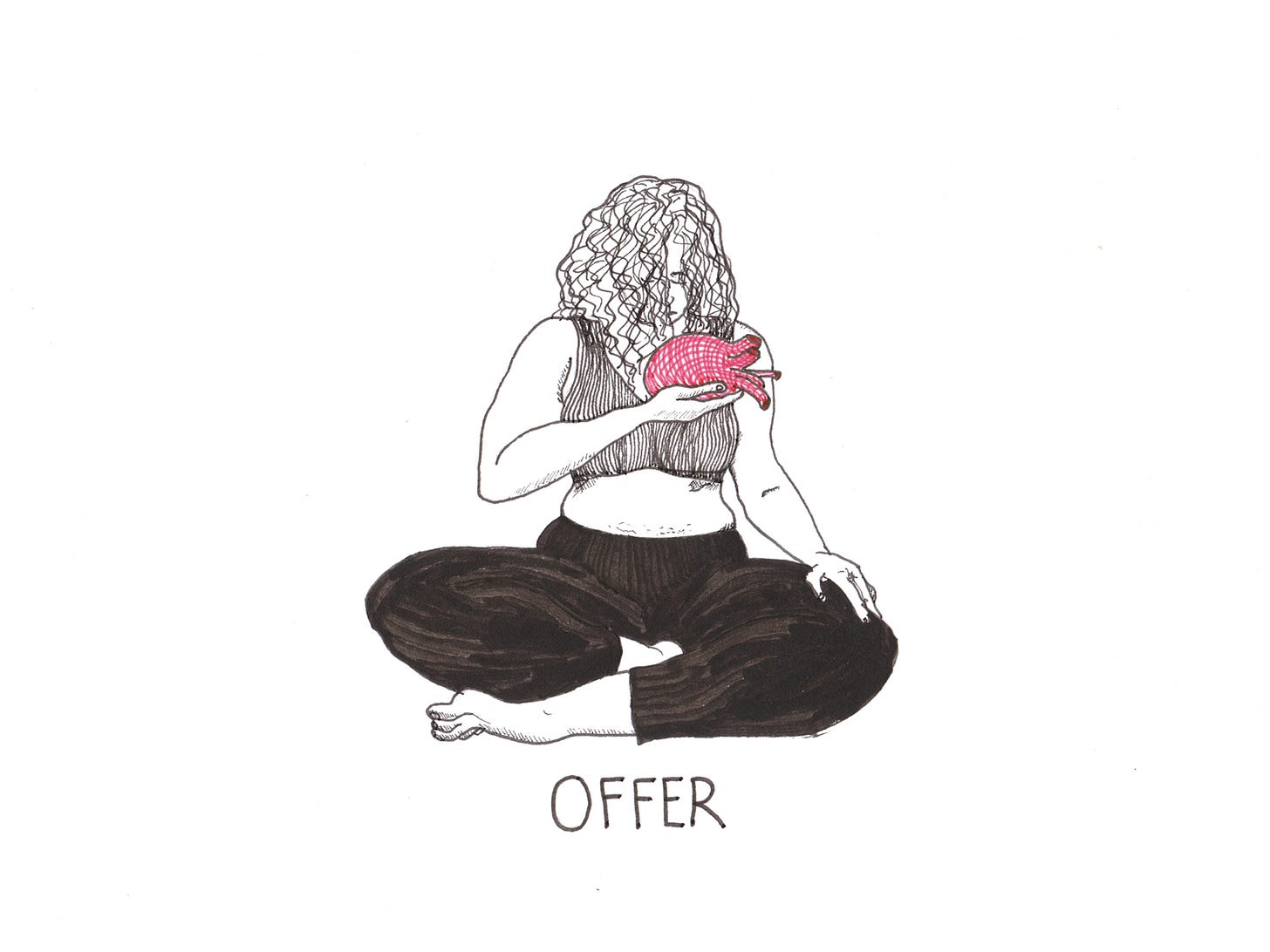Hot Take...
After almost a year of teaching, and spending time with young people, I have discovered a byproduct to the experience I never could have predicted. I have found that when I see any 19 to 22-year-olds out in the world (or at least what I perceive to be 19 to 22-year-olds - my age radar isn't spectacular), I feel an upwelling of affection for them. On streets and subways I catch myself watching them with bemused compassion. I find I’m keeping my eye out for them for the endless parade of hazards in New York City; I worry about their mental health. I care so deeply for the specific young people who share their creative practices with me every week, that I see them in the nameless youthful faces I encounter outside the classroom.
I believe this shift has been largely due to exposure, and because my job is to “help” people like them. Theirs is a demographic that, prior to teaching in higher education, I had not had much interaction with. I did feel this compassion with teenagers and younger children who I interact with more regularly through volunteering at The 52nd Street Project, but this particular age group hadn’t stood out to me until I started working with them regularly. Though I am always looking for ways to be of service as I walk through the world, I feel a less direct compelling force to “help” 30-somethings and older, because it is not what I engage in professionally, but I imagine if I started teaching adult education, that might change as well.
When I have expressed this surprise gift of teaching to friends and family, they often say - with all good intentions - something along the lines of “it's your maternal instinct kicking in!” I must say it rubs me the wrong way, and I find it a limiting and restricting way to think about true lovingkindness. While I don't seek to deny the value and power of what the concept of mothering stands for, I think it would serve us societally to divorce our understanding of compassion from the concept of motherhood.
This (perhaps controversial) thought is at odds even with the non-dual teachings of Buddhism, which informs so much of my philosophical life. In the Karaniya Metta Sutta it is stated:
Even as a mother protects with her life
Her child, her only child,
So with a boundless heart
Should one cherish all living beings;1
But wouldn’t we open ourselves up to a vaster understanding of love and care if we took away the cultural signifier of “mother”? Would it not open up greater space for men to access empathy, if we said that it was bigger even than motherhood? What if we separated the thought of intense care for other humans from any gendered thinking whatsoever? What if I feel this upwelling for young people because I am a human tapping into the greatest gifts ALL humans get to experience in our lifetimes: gratitude, mutual respect, and interdependence?
What if when I feel untethered affection for another being or group of beings, we said, “it's your human instinct kicking in!”
Furthermore, there is a problem with tying my feelings for my students to the concept of motherhood. It can create a dangerous and unhelpful breakdown of boundaries. Just this weekend I had a student email me in a meltdown regarding their final project. It is vitally important that I do not approach this situation with the energy or intent of a parent. Both to maintain my professional boundaries, and to best serve this student - to best love them - it behooves me to tap into a deeper well of non-mothering compassion, and offer them tools to approach their problem solving from a loving distance.
I am not a mother. I have never had any desire to be a mother. I am a mentor. I was born to be a mentor. As we have seen from the current presidential race, many humans in my country and throughout the globe believe in their heart of hearts that people like me are not living up to our full potential because we do not want to be parents. We are selfish, sad, and lonely. I think I can say with some confidence no one who knows me would say any of those things about me. But that is the conscious belief of many, and I believe the more we linguistically tie broad nurturing to mothering, it becomes the unconscious belief even of those who do not ascribe to it directly.
I believe there is no fundamental connection between the choice to or not to parent and my capacity to nurture and tend to all sentient beings.
If you would like to praise my care for my students, praise my human instinct kicking in. And praise your own.
You can read the full Metta Sutta at https://www.accesstoinsight.org/tipitaka/kn/snp/snp.1.08.amar.html





